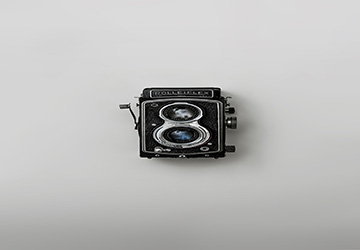The healthcare industry has always been at the forefront of technological advancement, but the rise of artificial intelligence (AI) has brought a new level of transformation. From improving the accuracy of diagnosis and treatment to reducing costs and enabling personalized care, artificial intelligence has the potential to revolutionize the way healthcare is delivered.
As technology advances, we can expect even more significant changes in the healthcare industry. This article explores how artificial intelligence is changing the healthcare industry, from diagnosis and personalized treatment to robotics and cost savings.
Diagnosis

Artificial intelligence is changing the way medical professionals diagnose disease. By analyzing vast amounts of patient data, including medical records and images, artificial intelligence algorithms can identify potential health problems more accurately than ever before.
Predictive Analytics
Artificial intelligence is revolutionizing the healthcare industry through predictive analytics. By analyzing large data sets, AI algorithms can identify patterns and predict future health problems, allowing healthcare professionals to take proactive steps to prevent them.
Personalized Treatment
AI is transforming healthcare by creating personalized treatment plans for patients. By analyzing patient data, including genetic information, medical history and lifestyle choices, AI algorithms can develop a treatment plan tailored to each patient. This can lead to more effective treatment and better outcomes as patients receive the care that best meets their individual needs.
robot:
Artificial intelligence is playing a vital role in the development of healthcare robotics. Robotic devices can perform complex operations with greater precision, reducing the risk of error and improving patient outcomes. In addition, robots can also assist in physical therapy and rehabilitation, helping patients recover faster. The combination of artificial intelligence and robotics in healthcare has dramatically improved patient outcomes, reduced the risk of complications, and shortened recovery times.
Drug Discovery
Artificial intelligence is changing the drug discovery process, enabling researchers to analyze large amounts of data to identify potential drug candidates and predict their effectiveness. This can significantly speed up drug discovery and bring new medicines to market more quickly and efficiently.
Remote monitoring
AI is transforming remote patient monitoring by enabling healthcare professionals to remotely monitor patient health. This allows for early detection of potential health problems and timely intervention, improving patient outcomes. Remote monitoring also reduces the need for in-person doctor visits, thereby significantly reducing healthcare costs.
Medical Imaging
AI is transforming medical imaging, enabling healthcare professionals to analyze medical images such as X-rays and MRIs to detect potential health problems. This could lead to more accurate diagnosis and treatment options, and improve patient outcomes.
Electronic medical records
Artificial intelligence is transforming electronic health records by analyzing patient data to identify potential health problems and predict future health risks. This enables healthcare professionals to provide proactive care and prevent potential health problems.
Virtual Assistant
Artificial intelligence is transforming the healthcare industry, enabling virtual assistants to help healthcare professionals schedule appointments, remind patients to take their medication and answer basic health questions. This can significantly reduce the workload of healthcare professionals, allowing them to focus on providing more specialized care to patients.
Saving measures

Finally, AI is transforming the healthcare industry through cost savings. By using AI algorithms to analyze data and optimize processes, healthcare providers can reduce costs and provide more affordable care. Additionally, AI can help prevent potential health problems and reduce the need for costly treatments and procedures. Integrating AI into healthcare can lead to significant cost savings and make healthcare more accessible and affordable for patients.
FAQ
Q: How is artificial intelligence changing the healthcare industry?
A: AI is changing healthcare in a number of ways, including improving the accuracy of diagnosis and treatment, enabling personalized care, reducing costs and improving patient outcomes.
Q: What is predictive analytics in healthcare?
A: Predictive analytics involves using AI algorithms to analyze large data sets to identify patterns and predict future health problems. This enables healthcare professionals to proactively prevent health problems and improve patient outcomes.
Q: How can artificial intelligence enable personalized treatment in healthcare?
A: By analyzing patient data, including genetic information, medical history, and lifestyle choices, AI algorithms can develop a tailored treatment plan for each patient, resulting in more effective treatment and better outcomes.
Q: How is artificial intelligence applied to medical imaging?
A: AI is being used in medical imaging to analyze medical images such as X-rays and MRIs to identify potential health problems more accurately than ever before, leading to more accurate diagnoses and treatment options.
Q: How can artificial intelligence reduce healthcare costs?
Artificial intelligence reduces healthcare costs by analyzing data and optimizing processes, reducing the need for expensive treatments and procedures, and providing more affordable care for patients.
Diploma:
Artificial intelligence is changing the healthcare industry in many ways, from improving diagnostic accuracy to enabling personalized treatment plans. As the amount of data available increases, artificial intelligence has the potential to revolutionize healthcare and improve patient outcomes. With advancements in artificial intelligence technology, we can expect even greater changes in the healthcare industry in the future.